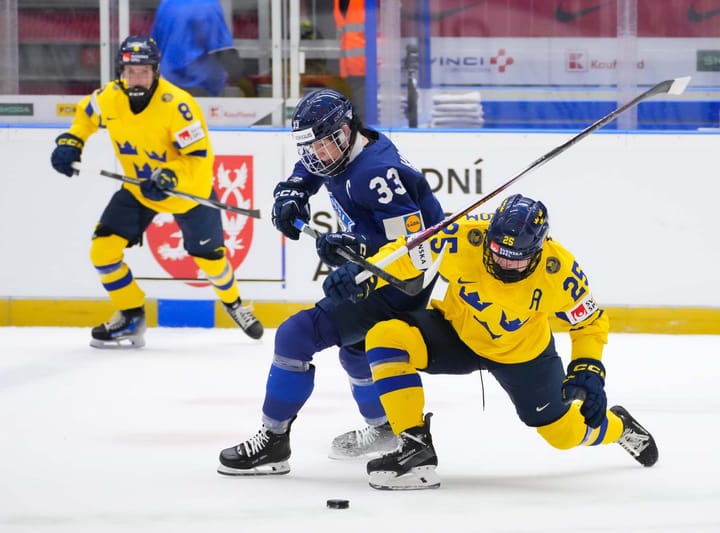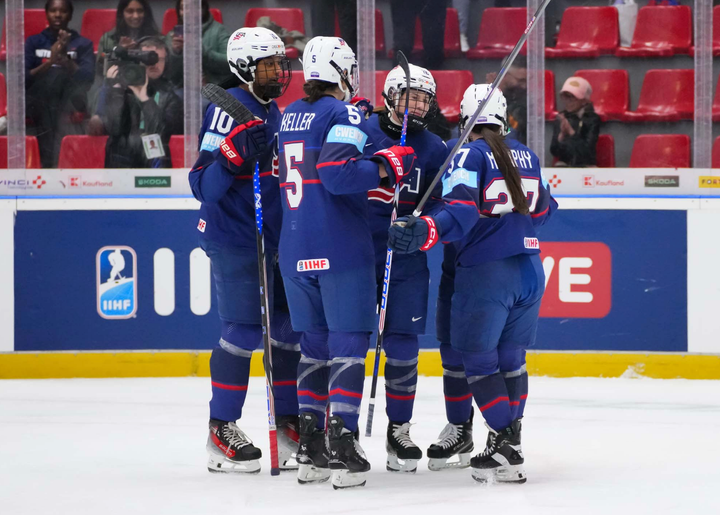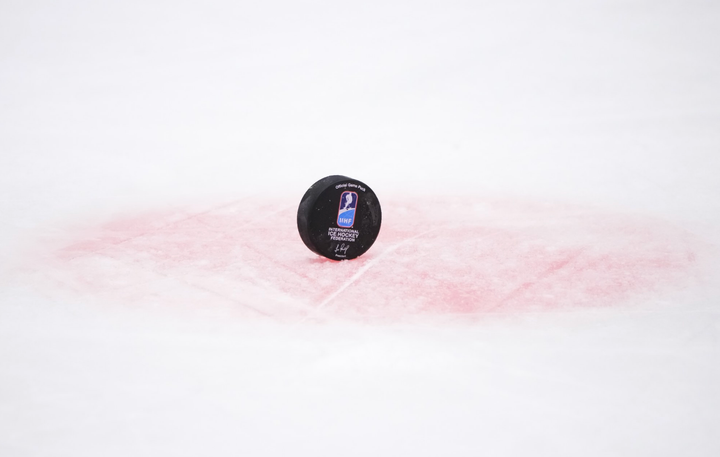Laura Schuler and staff have a lot to prove
Canada's coaching staff for Pyeongchang 2018 has no Olympic experience and no major tournament success
Hockey Canada announced Wednesday that Laura Schuler will be head coach of the women's national team at the 2018 Winter Olympics in Pyeongchang, South Korea. Dwayne Gylywoychuk and Troy Ryan will join her as assistant coaches, while Brad Kirkwood will serve as the team’s goaltending consultant.
The coaches were selected by Melody Davidson, Hockey Canada’s general manager of national women’s team programs. All four led Team Canada at the 2017 IIHF Women's World Championship, and all but Ryan coached at the 2016 Worlds. None have previous Olympic coaching experience.
During Schuler's tenure, Canada has won exactly three games against the United States: a 3-2 preliminary victory at the 2016 4 Nations Cup (Canada lost to the Americans 5-3 in the final), and 5-3 and 3-2 wins in the 2016 December Series, where Team USA was without an established head coach. Even in these victories, the Canadians managed just two power-play goals on 12 chances.
Schuler's roster construction for both the 2016 and 2017 World Championships has raised questions.
Only two centres ― Marie-Philip Poulin and Brianne Jenner ― managed to win more than 55 percent of their face-offs in either tournament (they both did so in both editions), and the repeated failure to address this gap has put Canada at a disadvantage from the very first whistle. If only two centres can be relied upon to gain puck possession, the team is far more likely to find itself scrambling to recover the puck rather than building offensively. That this glaring issue wasn't addressed in the intervening year is cause for some concern.
Tactical choices have also left much to be desired. Canada had only one goal from defenders in the 2017 tournament, and only three defenders tallied two points. In 2016, five of the team's goals came from the blue line and five different Canadian defenders each had two or more points. The disparity between these numbers reflects the 2017 team's visible failure to build up play from the back, a tactic which would have enhanced the forwards' abilities to showcase their offensive creativity. Whether this change was by design or due to poor execution, the lack of adjustment throughout the tournament doesn't bring comfort.
After Canada's 4-3 loss to Finland in the preliminary round at the 2017 Worlds ― a game in which Canada failed to capitalize on all six power play opportunities, ― Nicole Haase reported that Schuler "was adamant there weren't problems to fix." Nonetheless, line combinations were altered for the following games, including transferring Emily Clark to the top line wing from her initial position at centre. This shift would seem to indicate an awareness that the lack of reliable, defensively-responsible centres was a problem, but whether Schuler recognized that as a roster issue remains worryingly unclear.
Other roster management questions also emerged: Why dress both back-ups against Finland to begin with? Surely it would've made more sense to keep the number one goaltender on the bench in case things went awry, as they did. Geneviève Lacasse ultimately performed well in relief, but given that she was third on the depth chart, it isn't hard to imagine the game going (even more) wrong. The Canadians did, after all, narrowly miss out on a trip to the quarterfinals.
Canada's power play at the 2017 tournament was largely ineffective and often found itself completely unable to set up, finishing with a 22.73 percent success rate that was itself bolstered by a 42.86 percent performance against a disheveled Russian side. The Canadians scored just five power play goals on 22 opportunities throughout the tournament, and excluding the lopsided 8-1 win over Russia, Canada's power play scored on just two ― or 13.33 percent ― of its 15 chances.
But still, there weren't problems to fix.
Schuler returns alongside the same coaching staff that led the team at 2017 Worlds, minus assistant coach Caroline Ouellette.
Ouellette's absence is not surprising ― she has explained that she is too recently removed from the team to be considered a suitable coaching candidate in this centralization cycle ― but the lack of any other changes is intriguing. With no new additions, a coaching staff with no Olympic experience and featuring three men who are relatively new to the women's game will return to determine who represents Canada at the 2018 Games.
Hockey Canada has emphasized its commitment to including program alumnae on its coaching staff, but despite many well-qualified candidates, not only is Schuler the only alumna coaching the team, she's also the only woman. The federation seems confident that Schuler is the best choice to lead this program and to be the first alumna to serve as head coach for an Olympic competition. But with assistant coaches even less experienced in coaching the senior women's game than she is, it doesn't appear that she's being set up for success.





Comments ()